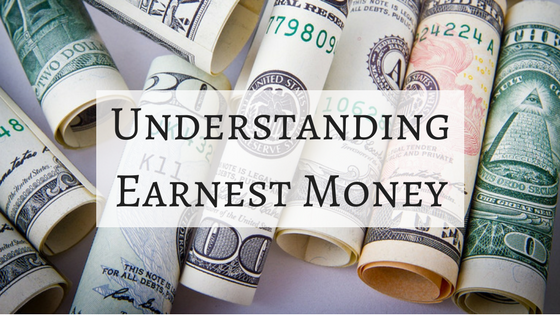
21 Feb What is the function of Earnest Money?
What is the function of Earnest Money?
What is the definition of Earnest Money?
Earnest money is a deposit made to the seller. It represents a buyer’s good faith to buy their home. During that good faith period before closing the buyer does their home inspections. Also, secures a title search, has the property appraised (if financed) and finalizes the financing. In many ways, earnest money can be considered a deposit on a home or good faith money.
When is Earnest Money provided?
Earnest monies are provided within three days of an accepted contract. This is what is normally found in the standard purchase agreement used by real estate agents in the Twin Cities and surrounding area. There are exceptions to this. As an example, is new construction with a smaller builder, many times more substantial deposits are needed.
Who holds the Earnest Money?
The company of the listing real estate agent traditionally holds the earnest money. This is held in a state regulated escrow account. The buyer’s given credit for that amount at closing. Funds are by a check, cashier check or electronic transfer with “Trust funds” to that account.
Can I get my earnest money back?
If the buyer is unable to get financing and has that contingency in the purchase agreement, then they can get their earnest money back. Or if per the inspection, agreement is not reached on needed repairs. Then the purchase agreement’s canceled and earnest money returned. Another way would be if the title search found a lien or cloud.
What is the definition of Earnest Money?
Earnest money is a deposit made to the seller. It represents a buyer’s good faith to buy their home. During that good faith period before closing the buyer does their home inspections. Also, secures a title search, has the property appraised (if financed) and finalizes the financing. In many ways, earnest money can be considered a deposit on a home or good faith money.
When is Earnest Money provided?
Earnest money is given within three days of an accepted contract. This is what is normally found in the standard purchase agreement used by real estate agents in the Twin Cities and surrounding area. There are exceptions to this. As an example, is new construction with a smaller builder, many times more substantial deposits are needed.
Who holds the Earnest Money?
The company of the listing real estate agent traditionally holds the earnest money. This is held in a state regulated escrow account. The buyer is then given credit for that amount at closing. Funds can be given by a check, cashier check or electronic transfer with “Trust funds” to that account.
Can I get my earnest money back?
If the buyer is unable to get financing and has that contingency in the purchase agreement. Then they can get their earnest money back. Or if per the inspection an agreement is not reached on needed repairs. Then the purchase agreement is canceled and earnest money returned. Another way would be if the title search found a lien or cloud. That would prevent the deed transfer to the buyers. Then the sale is canceled and earnest money returned. Those are some of the most common. But they are other circumstances too where the buyer will receive their earnest money back.
Can the buyer lose their earnest money?
Yes, if the buyer decides at the last minute that they don’t want the home and there are no contingencies left. It is a binding contract and while the seller expects the buyer to perform the buyer also expects the seller to sell.
How much should I give for earnest money?
Common practice we find to be one percent of the sales price in the Twin Cities. But everything is negotiable so that can vary. As an example, it might be a multiple offer situation and the buyer might want to look more earnest and provide a larger amount.
I hope you found this helpful
Reach out to me if you want to sit down and discuss what is best for your situation.
. Those are some of the most common. But they are other circumstances too where the buyer will receive their earnest money back.
Can the buyer lose their earnest money?
Yes, if the buyer decides at the last minute that they don’t want the home and there are no contingencies left. It is a binding contract and while the seller expects the buyer to perform the buyer also expects the seller to sell.
How much should I give for earnest money?
Common practice we find it to be one percent of the sales price in the Twin Cities. But everything is negotiable so that can vary. As an example, it might be a multiple offer situation and the buyer might want to look more earnest and provide a larger amount.
I hope you found this helpful
Reach out to me if you want to sit down and discuss what is best for your situation.
Contact us
For further information Jeff Anderson / RE/MAX Results or one of his team members, please call 612-386-8600.
Please contact The Anderson Team with any questions. We are here to help educate you the process of looking for the right home.
Search all Real Estate for Sale in Minnesota
Looking to Relocate to or from Minnesota? CLICK HERE

Sorry, the comment form is closed at this time.